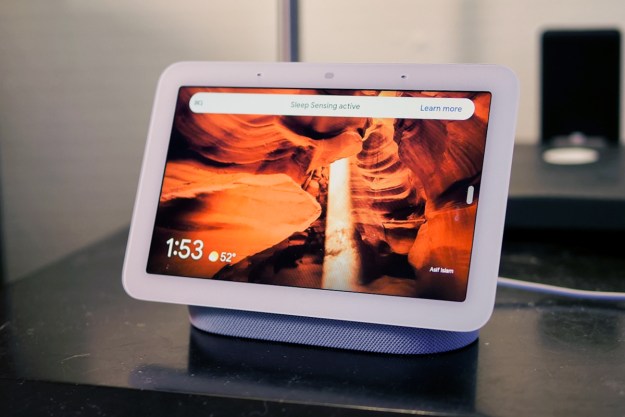Consumer privacy is a tightrope act that no company has quite managed to nail down and that some seem to have given up on. In a recent interview with the BBC that followed Google’s event in New York, Rick Osterloh, the senior vice president of devices and services, said that homeowners might want to consider disclosing the presence of smart devices before they invite guests into their home.
The statement follows a string of incidents involving Google devices. In July, a Belgian company discovered that third-party transcriptionists were used to review Google Home and Google Assistant recordings — and that those recordings had captured private, personal information without the user’s knowledge. Last month, a hacker terrorized a family through their Nest smart thermostat. Google assured the homeowners the attack was not the result of a security breach, but had no other answers.
Smart home devices receive an unfiltered view into your home, but proper privacy practices have seemed like a secondary consideration for some time. Nest’s cameras have an LED that is always on when the camera is in recording mode (and it can’t be overwritten by the user), but knowing a camera is recording is different from knowing when a smart assistant is recording conversation it isn’t meant to hear.
While homeowners can take precautions with their smart devices (like reviewing what it has heard and deleting recordings they don’t want it to have), telling Nest users to inform guests that they might be recorded is a strange request. However, the new Nest devices are built with security features, including a mode that has the assistant listening at all times for “critical sounds,” most often defined as the beep of a carbon monoxide detector or smoke alarm.
The devices can also record independently of user commands, which means users might not realize the Nest has been activated. While the four LEDs on top of a Nest Mini (and the corresponding lights on the Nest Hub Max) should indicate the device is listening, the method is not foolproof. With devices like these, Google should take more steps to prevent accidental activations and enable stronger user privacy options rather than ask users to inform guests they might be recorded.
Editors' Recommendations
- Home Depot’s Hubspace is a great way to start building your smart home
- Echo Hub vs. Echo Show 15: Which is the best smart home gadget?
- Echo Hub vs. Echo Show 8: Which is the best option for your smart home?
- Should you buy a wired or wireless video doorbell?
- Echo Show 8 vs. Echo Show 10: is the bigger device a better smart display?




